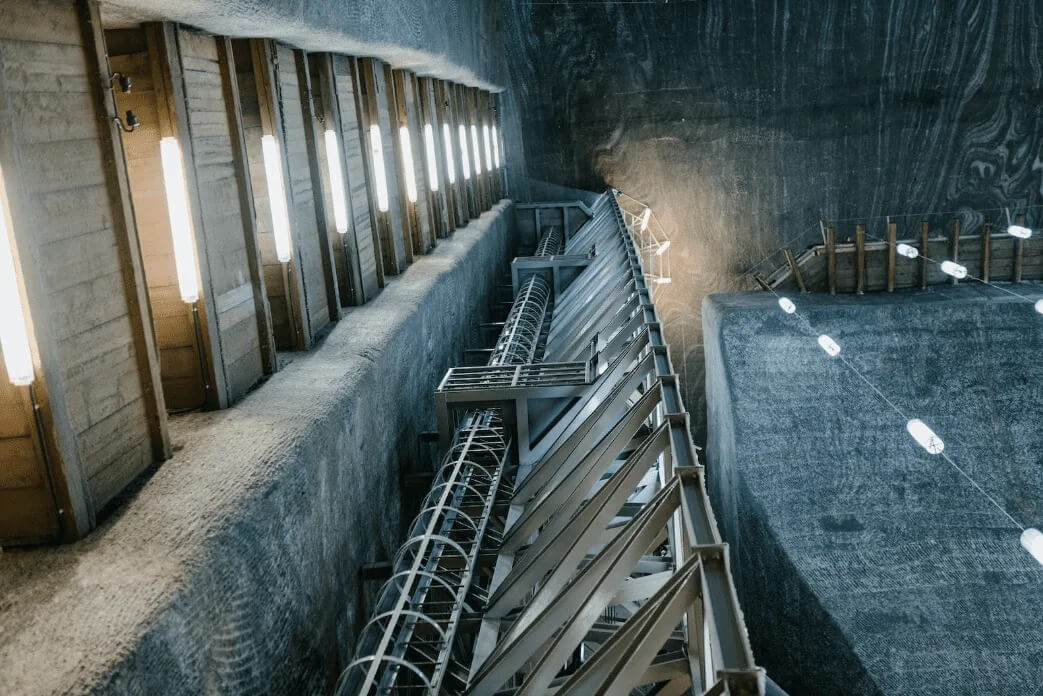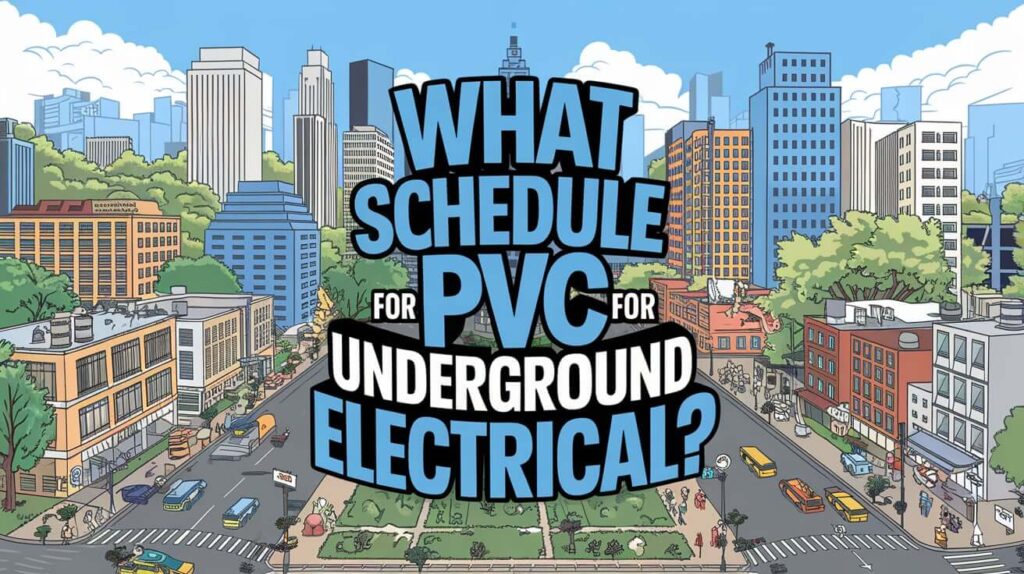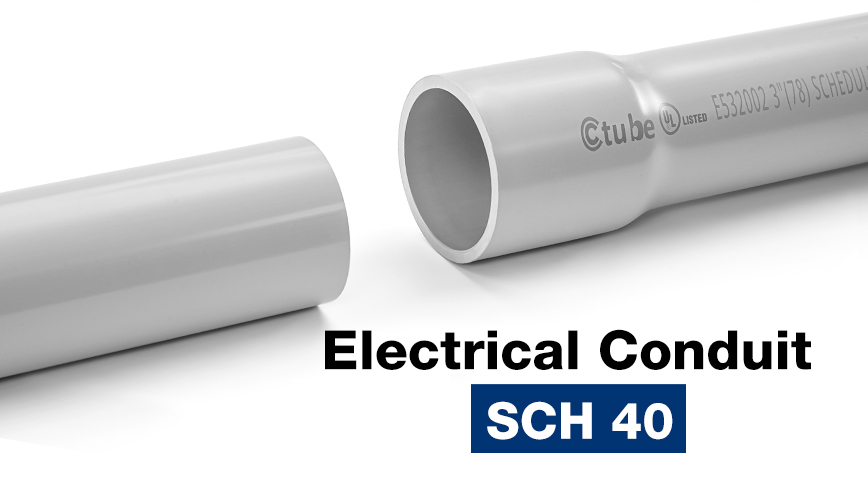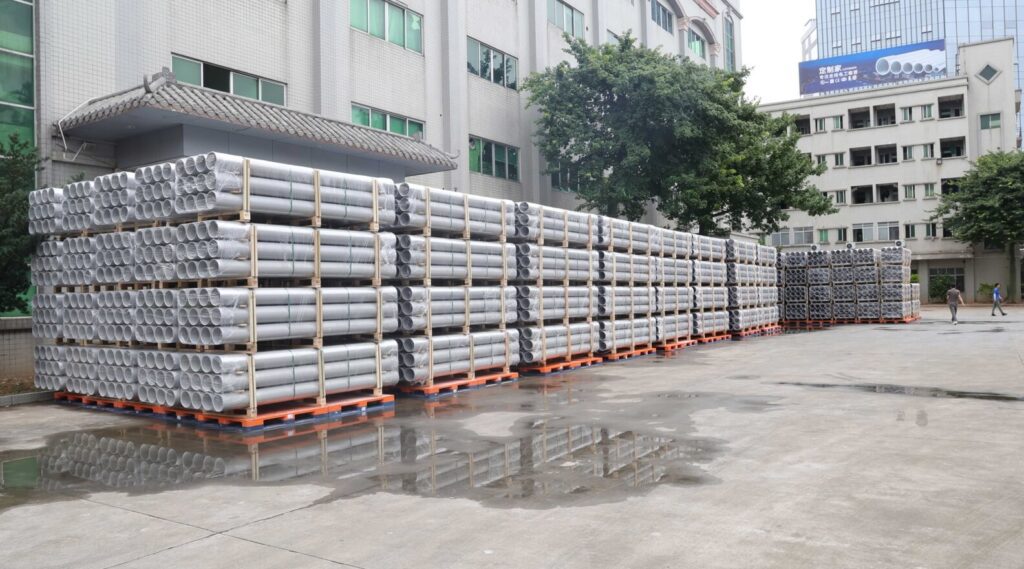Qual é o Cronograma PVC para instalações elétricas subterrâneas?
Introdução
O conduíte de PVC é uma escolha popular para instalações elétricas subterrâneas devido à sua durabilidade, resistência à corrosão e acessibilidade. No entanto, selecionar a classificação de programação correta para o conduíte de PVC é crucial para garantir uma instalação elétrica segura e confiável. Nesta publicação, explicaremos as diferentes classificações de programação para o conduíte de PVC e forneceremos dicas para escolher a melhor programação para seu projeto elétrico subterrâneo.

Compreendendo as classificações de cronograma de conduítes de PVC
Classificação de programação é um termo usado para descrever a espessura da parede e a capacidade de pressão do conduíte de PVC. Quanto maior a classificação de programação, mais espessa a parede e maior a capacidade de pressão do conduíte. As classificações de programação mais comuns para conduítes de PVC usados em instalações elétricas subterrâneas são Schedule 40, Schedule 80 PVC conduíte e Schedule 80 conduíte elétrico.
Conduíte de PVC Anexo 40
O conduíte de PVC Schedule 40 é o tipo mais comum e acessível de conduíte de PVC. Ele tem uma espessura de parede de 0,154 polegadas e pode suportar pressões de até 120 psi. O conduíte de PVC Schedule 40 é adequado para a maioria das instalações elétricas subterrâneas residenciais e comerciais leves.
Conduíte de PVC Schedule 80
O conduíte de PVC Schedule 80 é mais espesso e mais forte do que o conduíte de PVC Schedule 40, com uma espessura de parede de 0,218 polegadas e uma capacidade de pressão de até 200 psi. É ideal para instalações elétricas subterrâneas que exigem durabilidade extra, como aquelas em áreas com tráfego intenso de pedestres ou veículos.
Diferenças entre conduítes de PVC do Anexo 40 e do Anexo 80
A principal diferença entre o conduíte de PVC Schedule 40 e Schedule 80 é sua espessura e capacidade de pressão. O conduíte de PVC Schedule 80 é mais durável e pode suportar pressões mais altas do que o conduíte de PVC Schedule 40, tornando-o adequado para instalações elétricas subterrâneas mais exigentes. No entanto, também é mais caro do que o conduíte de PVC Schedule 40.
Fatores a considerar ao escolher um cronograma para conduíte de PVC para instalações elétricas subterrâneas
Vários fatores devem ser considerados na escolha de um cronograma para eletrodutos de PVC para instalações elétricas subterrâneas
Profundidade de enterramento: Quanto mais fundo o conduíte estiver enterrado, maior será a pressão a que ele estará sujeito. Se o conduíte estiver enterrado a mais de 18 polegadas, o conduíte de PVC Schedule 80 é recomendado.
Tipo de solo: O tipo de solo pode afetar a pressão à qual o conduíte será submetido. Se o solo for rochoso ou tiver um lençol freático alto, o conduíte de PVC Schedule 80 é recomendado.
Carga elétrica: A quantidade de carga elétrica que o conduíte carregará pode afetar a pressão à qual ele será submetido. Para instalações com altas cargas elétricas, o conduíte de PVC Schedule 80 é recomendado.
Condições ambientais: O ambiente em que o conduíte será instalado pode afetar sua durabilidade. Se a instalação for em uma área com tráfego intenso de pedestres ou veículos, ou em uma área com exposição a condições climáticas adversas, o conduíte de PVC Schedule 80 é recomendado.
Regulamentos e códigos locais: Regulamentos e códigos locais podem especificar o tipo de conduíte de PVC necessário para instalações elétricas subterrâneas.
Melhores práticas para instalação de conduítes de PVC para instalações elétricas subterrâneas
Técnicas de instalação adequadas são cruciais para garantir uma instalação elétrica subterrânea segura e confiável. Aqui estão algumas práticas recomendadas para instalar conduítes de PVC para eletricidade subterrânea:
Valas e leitos adequados: A vala na qual o conduíte será instalado deve ter pelo menos 18 polegadas de profundidade e largura suficiente para permitir o leito adequado. O material de leito deve ter no mínimo 4 polegadas de profundidade e deve ser compactado.
Técnicas corretas de instalação: O conduíte deve ser instalado de acordo com as regulamentações locais e códigos, que podem exigir profundidades de enterramento específicas, raios de curvatura mínimos e uso adequado de conexões e acoplamentos.
Uso de conexões e acoplamentos apropriados: O uso de conexões e acoplamentos apropriados é crucial para garantir uma conexão estanque e segura entre seções de conduíte de PVC. Todas as conexões e acoplamentos devem ser feitos de material de PVC e devem ser classificados para uso com o cronograma específico do conduíte de PVC que está sendo usado.
Conclusão
Escolher a classificação de programação correta para conduíte de PVC é crucial para garantir uma instalação elétrica subterrânea segura e confiável. O conduíte de PVC Schedule 40 é adequado para a maioria das instalações residenciais e comerciais leves, enquanto o conduíte de PVC Schedule 80 é recomendado para instalações mais exigentes que exigem durabilidade extra. O conduíte elétrico Schedule 80 é adequado para instalações que exigem resistência extra ao calor. Ao selecionar uma programação para conduíte de PVC, vários fatores devem ser considerados, incluindo a profundidade do enterramento, tipo de solo, carga elétrica, condições ambientais e regulamentações e códigos locais. Ao seguir as melhores práticas para instalar conduítes de PVC, como valas e leitos adequados, técnicas de instalação corretas e o uso de conexões e acoplamentos apropriados, você pode garantir uma instalação elétrica subterrânea segura e confiável.
Qual é o Cronograma PVC para instalações elétricas subterrâneas? Ler mais »



